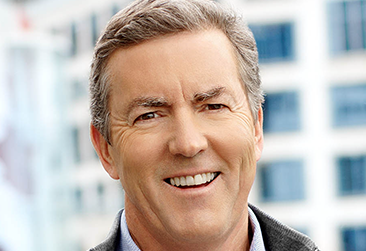It is more dramatic and momentous in telling a story to look for an epiphany that changed someone’s purpose – a sensational event, a striking realization, something extraordinary that awakened a sudden commitment to a cause in somebody.
Sometimes, though, that inflection point isn’t there. It just always was there for as long as someone can remember. Ross Beaty, geologist by training, business legend by practice, demurs when asked if anything abrupt made him arguably sa国际传媒’s most significant environmental philanthropist.
“No, it has always been there,” he says of his mission in mixing his mining and clean energy prowess with a resolve to rewild and reclaim land so it can better renew its original function.
“All my life, I’ve been interested in preservation.”
He stops and reflects.
“The only thing that has changed is my wealth.”
He is still a peripatetic dealmaker, last week taking a break in a luncheon presentation to cement a US$995-million deal for his Equinox Gold firm to buy a 40-per-cent share of Orion Mine Finance in Ontario’s Greenstone gold mine.
But his eyes light up, his voice perks up, and he gets a physical charge into gear on his passion for parkland – “the very best way of protecting nature,” he would tell me – and the ambitious, exceptional objective for it to be 30 per cent of British Columbia by 2030.
It is now about 19 per cent parkland, and Beaty will talk your ears off about the importance of reclaiming the biodiversity of British Columbia and about the race against the clock.
“I see this as what I hope will be my greatest personal legacy,” he says.
“Next to my children, this is my priority.”
Which is what Beaty is renowned for: an application of an industrious big brain, but in balance with the stronghold of emotional intelligence, of an affinity with the land and a respect for its history so that its extraction of resources carries with it a conscious consideration of rights and the right ways.
He founded Pan American Silver Corp., now the world’s second-largest silver firm, and has made Equinox Gold in a few short years among the top 15 among gold producers. He has a long list of holdings in some of the country’s greatest energy and mining firms. His and wife Trisha’s Sitka Foundation finances 70-some environmental organizations.
He is a director of the Pacific Salmon Foundation, championed the Beaty Biodiversity Museum, and built the charitable Panthera Corp. to preserve wild cats and their habitats.
He has few peers, unfortunately, and it chafes a bit for him to see “the parsimony of certain people” who hoard their holdings, “run away from sa国际传媒 simply to keep more of the money they will never spend.”
He’ll tell you: “I actually like paying taxes because it helps people.”
He’ll also say: “I’m not anti-development,” yet he’ll decry the loss of biodiversity in places like the Okanagan, “sa国际传媒’s only desert,” through sprawling subdivisions, or through the waterfront homes on the Salish Sea that negate intact habitat.
The $500-million, 30-by-2030 campaign, and its shorter-term 25-by 2025 one, is championed by the , of which he is chair, with a clear, broad role in protecting and expanding parks and Indigenous protected areas.
Not so long ago, the general perception would have been to see its work as intrusive to industry and an impediment to commerce. Just as over time the climate change debate has shifted, Beaty believes this debate has evolved, too, and is today precisely flipped – that the articulation of parkland clarifies the rules of engagement for logging and mining, affirms the two-government roles that unambiguously involves Indigenous leadership, and places the primary resource of our natural habitat first and foremost so it can be showcased for the world. Any loss in economic activity can be offset by ecotourism and the wealth of opportunity that comes in ministering to the land itself.
In conversation, the 72-year-old will constantly call his accomplishments and station in life “lucky.” It’s one of the few things he says that people find hard to believe.
Kirk LaPointe is a Glacier Media columnist with an extensive background in journalism.

